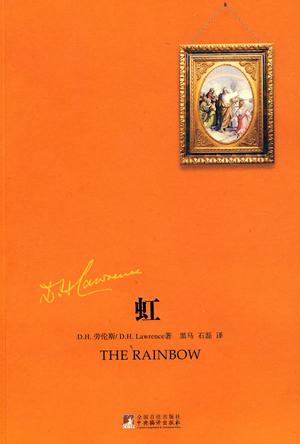���ӱ���(��Ӣ�Ķ��հ�)-��4����
�������Ϸ���� �� �� �� �ɿ������·�ҳ���������ϵ� Enter ���ɻص�����Ŀ¼ҳ���������Ϸ���� �� �ɻص���ҳ������
��������δ�Ķ��ꣿ������ǩ�ѱ��´μ����Ķ���
��������ڣ����������������Ҳ���o������֮�죬�o������֮ꇣ�����׃��Ҳ��
���ñ�֮�����������������棬�����ģ��J�����D����ʳ���w������������z�I���F�����ȣ����ñ�֮��Ҳ��
VII����MANEUVERING
��1����Sun��Tzu��said������In��war����the��general��receives��his��mands��from��the��sovereign��
��2����Having��collected��an��army��and��concentrated��his��forces����he��must��blend��and��harmonize��the��different��elements��thereof��before��pitching��his��camp��
��3����After��that����es��tactical��maneuvering����than��which��there��is��nothing��more��difficult����The��difficulty��of��tactical��maneuvering��consists��in��turning��the��devious��into��the��direct����and��misfortune��into��gain��
��4����Thus����to��take��a��long��and��circuitous��route����after��enticing��the��enemy��out��of��the��way����and��though��starting��after��him����to��contrive��to��reach��the��goal��before��him����shows��knowledge��of��the��artifice��of��DEVIATION��
��5����Maneuvering��with��an��army��is��advantageous����with��an��undisciplined��multitude����most��dangerous��
��6����If��you��set��a��fully��equipped��army��in��march��in��order��to��snatch��an��advantage����the��chances��are��that��you��will��be��too��late������On��the��other��hand����to��detach��a��flying��column��for��the��purpose��involves��the��sacrifice��of��its��baggage��and��stores��
��7����Thus����if��you��order��your��men��to��roll��up��their��buff��coats����and��make��forced��marches��without��halting��day��or��night����covering��double��the��usual��distance��at��a��stretch����doing��a��hundred��LI��in��order��to��wrest��an��vantage����the��leaders��of��all��your��three��divisions��will��fall��into��the��hands��of��the��enemy��
��8����The��stronger��men��will��be��in��front����the��jaded��ones��will��fall��behind����and��on��this��plan��only��one��tenth��of��your��army��will��reach��its��destination��
��9����If��you��march��fifty��LI��in��order��to��outmaneuver��the��enemy����you��will��lose��the��leader��of��your��first��division����and��only��half��your��force��will��reach��the��goal��
10����If��you��march��thirty��LI��with��the��same��object����two��thirds��of��your��army��will��arrive��
11����We��may��take��it��then��that��an��army��without��its��baggage��train��is��lost����without��provisions��it��is��lost����without��bases��of��supply��it��is��lost��
12����We��cannot��enter��into��alliances��until��we��are��acquainted��with��the��designs��of��our��neighbors��
13����We��are��not��fit��to��lead��an��army��on��the��march��unless��we��are��familiar��with��the��face��of��the��country��its��mountains��and��forests����its��pitfalls��and��precipices����its��marshes��and��swamps��
14����We��shall��be��unable��to��turn��natural��advantage��to��account��unless��we��make��use��of��local��guides��
15����In��war����practice��dissimulation����and��you��will��succeed��
16����Whether��to��concentrate��or��to��divide��your��troops����it��must��be��decided��by��circumstances��
17����Let��your��rapidity��be��that��of��the��wind����your��pactness��that��of��the��forest��
18����In��raiding��and��plundering��be��like��fire����is��immovability��like��a��mountain��
19����Let��your��plans��be��dark��and��impenetrable��as��night����and��when��you��move����fall��like��a��thunderbolt��
20����When��you��plunder��a��countryside����let��the��spoil��be��divided��amongst��your��men����when��you��capture��new��territory����cut��it��up��into��allotments��for��the��benefit��of��the��soldiery��
21����Ponder��and��deliberate��before��you��make��a��move��
22����He��will��conquer��who��has��learnt��the��artifice��of��deviation������Such��is��the��art��of��maneuvering��
23����The��Book��of��Army��Management��says������On��the��field��of��battle����the��spoken��word��does��not��carry��far��enough����hence��the��institution��of��gongs��and��drums������Nor��can��ordinary��objects��be��seen��clearly��enough������hence��the��institution��of��banners��and��flags��
24����Gongs��and��drums����banners��and��flags����are��means��whereby��the��ears��and��eyes��of��the��host��may��be��focused��on��one��particular��point��
25����The��host��thus��forming��a��single��united��body����is��it��impossible��either��for��the��brave��to��advance��alone����or��for��the��cowardly��to��retreat��alone������This��is��the��art��of��handling��large��masses��of��men��
26����In��night��fighting����then����make��much��use��of��signal��fires��and��drums����and��in��fighting��by��day����of��flags��and��banners����as��a��means��of��influencing��the��ears��and��eyes��of��your��army��
27����A��whole��army��may��be��robbed��of��its��spirit����a��mander��in��chief��may��be��robbed��of��his��presence��of��mind��
28����Now��a��soldier's��spirit��is��keenest��in��the��morning����by��noonday��it��has��begun��to��flag����and��in��the��evening����his��mind��is��bent��only��on��returning��to��camp��
29����A��clever��general����therefore����avoids��an��army��when��its��spirit��is��keen����but��attacks��it��when��it��is��sluggish��and��inclined��to��return������This��is��the��art��of��studying��moods��
30����Disciplined��and��calm����to��await��the��appearance��of��disorder��and��hubbub��amongst��the��enemy����this��is��the��art��of��retaining��self��possession��
31����To��be��near��the��goal��while��the��enemy��is��still��far��from��it����to��wait��at��ease��while��the��enemy��is��toiling��and��struggling����to��be��well��fed��while��the��enemy��is��famished��this��is��the��art��of��husbanding��one's��strength��
32����To��refrain��from��intercepting��an��enemy��whose��banners��are��in��perfect��order����to��refrain��from��attacking��an��army��drawn��up��in��calm��and��confident��array����this��is��the��art��of��studying��circumstances��
33����It��is��a��military��axiom��not��to��advance��uphill��against��the��enemy����nor��to��oppose��him��when��he��es��downhill��
34����Do��not��pursue��an��enemy��who��simulates��flight����do��not��attack��soldiers��whose��temper��is��keen��
35����Do��not��swallow��bait��offered��by��the��enemy����Do��not��interfere��with��an��army��that��is��returning��home��
36����When��you��surround��an��army����leave��an��outlet��free����Do��not��press��a��desperate��foe��too��hard��
37����Such��is��the��art��of��warfare��
08���O�ӱ�������׃ƪ�ڰˡ�������������������������������
�O��Ի�����ñ�֮�����������ھ�����܊�۱����ܵ؟o�ᣬ��ؽ��ͣ��^�����������t֣����t��
;�������ɣ�܊���������������������������������������������ܡ�
�ʌ�ͨ�ھ�׃֮���ߣ�֪�ñ��өr����ͨ�ھ�׃֮�����m֪���Σ����ܵõ�֮���өr�α���֪��׃֮�X���m֪���������ܵ���֮���ӡ�
�ǹ�����֮��������s���������s���������տ���Ҳ�r�s�ں��������ɽ�Ҳ��
�ǹ����T�����Ժ������T�����ԘI��څ�T����������
���ñ�֮�����o���䲻�����������Դ�Ҳ�r�o���䲻���������������ɹ�Ҳ��
�ʌ�����Σ���������ɚ�Ҳ�r��������̔Ҳ�r���٣�����Ҳ�r����������Ҳ�r���ɟ�Ҳ���������ߣ���֮�^Ҳ���ñ�֮��Ҳ����܊������������Σ�����ɲ���Ҳ��
VIII����VARIATION��IN��TACTICS
��1����Sun��Tzu��said������In��war����the��general��receives��his��mands��from��the��sovereign����collects��his��army��and��concentrates��his��forces
��2����When��in��difficult��country����do��not��encamp������In��country��where��high��roads��intersect����join��hands��with��your��allies����Do��not��linger��in��dangerously��isolated��positions����In��hemmed��in��situations����you��must��resort��to��stratagem����In��desperate��position����you��must��fight��
��3����There��are��roads��which��must��not��be��followed����armies��which��must��be��not��attacked����towns��which��must��be��besieged����positions��which��must��not��be��contested����and��mands��of��the��sovereign��which��must��not��be��obeyed��
��4����The��general��who��thoroughly��understands��the��advantages��that��acpany��variation��of��tactics��knows��how��to��handle��his��troops��
��5����The��general��who��does��not��understand��these��may��be��well��acquainted��with��the��configuration��of��the��country����yet��he��will��not��be��able��to��turn��his��knowledge��to��practical��account��
��6����So����the��student��of��war��who��is��unversed��in��the��art��of��war��of��varying��his��plans����even��though��he��be��acquainted��with��the��Five��Advantages����will��fail��to��make��the��best��use��of��his��men��
��7����Hence��in��the��wise��leader's��plans����considerations��of��advantage��and��of��disadvantage��will��be��blended��together��
��8����If��our��expectation��of��advantage��be��tempered��in��this��way����we��may��succeed��in��acplishing��the��essential��part��of��our��schemes��
��9����If����on��the��other��hand����in��the��midst��of��difficulties��we��are��always��ready��to��seize��an��advantage����we��may��extricate��ourselves��from��misfortune��
10����Reduce��the��hostile��chiefs��by��inflicting��damage��on��them����and��make��trouble��for��them����and��keep��them��constantly��engaged����hold��out��specious��allurements����and��make��them��rush��to��any��given��point��
11����The��art��of��war��teaches��us��to��rely��not��on��the��likelihood��of��the��enemy's��not��ing����but��on��our��own��readiness��to��receive��him����not��on��the��chance��of��his��not��attacking����but��rather��on��the��fact��that��we��have��made��our��position��unassailable��
12����There��are��five��dangerous��faults��which��may��affect��a��general��
����������1����Recklessness����which��leads��to��destruction��
����������2����Cowardice����which��leads��to��capture��
����������3����A��hasty��temper����which��can��be��provoked��by��insults��
����������4����A��delicacy��of��honor��which��is��sensitive��to��shame��
����������5����Over��solicitude��for��his��men����which��exposes��him��to��worry��and��trouble��
13����These��are��the��five��besetting��sins��of��a��general����ruinous��to��the��conduct��of��war��
14����When��an��army��is��overthrown��and��its��leader��slain����the��cause��will��surely��be��found��among��these��five��dangerous��faults������Let��them��be��a��subject��of��meditation��
��
09���O�ӱ�������܊ƪ�ھš�������������������������������
�O��Ի����̎܊���������^ɽ���ȣ�ҕ��̎�ߣ���¡�o�ǣ���̎ɽ֮܊Ҳ���^ˮ���hˮ�r�ͽ^ˮ��������ӭ֮��ˮ�ȣ���������֮�����r�����ߣ��o����ˮ��ӭ�ͩrҕ��̎�ߣ��oӭˮ������̎ˮ��֮܊Ҳ���^��ɣ�Ωؽȥ�o���r����܊�ڳ��֮�У�����ˮ�ݣ��������䣬��̎���֮܊Ҳ��ƽ�̎�ף����ұ��ߣ�ǰ����������̎ƽ�֮܊Ҳ��������܊֮�����S��֮���Ԅ��ĵ�Ҳ��
��܊�ø߶����£��Fꖶ��vꎣ��B����̎����܊�o�ټ������^�١�����̷�����̎��ꖣ����ұ�֮���˱�֮������֮��Ҳ��
���꣬ˮĭ���������ߣ����䶨Ҳ��
�����н^�����쾮�����Ρ����_�����ݡ���϶����ؽȥ֮�����Ҳ�����h֮������֮�r��ӭ֮������֮��
܊�����U�衢�꾮����Ȕ����ľ��̣��C�ߣ���֔������֮���˷���֮��̎Ҳ��
�������o�ߣ������UҲ�r�h�������ߣ�����֮�MҲ�r���������ߣ���Ҳ��
������ߣ���Ҳ�r���ݶ����ߣ���Ҳ�r�B���ߣ���Ҳ�r�F��ߣ���Ҳ�r�m�߶��J�ߣ�܇��Ҳ�r�����V�ߣ�ͽ��Ҳ�rɢ���l�_�ߣ��Բ�Ҳ�r�ٶ������ߣ��I܊Ҳ��
�o�������ߣ��MҲ�r�o�����M��ߣ���Ҳ�r�p܇�ȳ�����ߣ��Ҳ�r�o�s��Ո���ߣ��Ҳ�r���߶�ꐱ��ߣ���Ҳ�r���M�����ߣ��TҲ��
�ȶ����ߣ���Ҳ�r��������ߣ���Ҳ�rҊ�������M�ߣ���Ҳ�r�B���ߣ�̓Ҳ�rҹ���ߣ���Ҳ�r܊�_�ߣ�������Ҳ�r�����ߣ��yҲ�r��ŭ�ߣ���Ҳ�r���R��ʳ��܊�o�������������ߣ��F��Ҳ�rՁՁ���⣬���c�����ߣ�ʧ��Ҳ�r���p�ߣ���Ҳ�r���P�ߣ���Ҳ�r�ȱ�����η�䱊�ߣ�����֮��Ҳ�r��ί�x�ߣ�����ϢҲ����ŭ����ӭ���ö����ϣ��ֲ���ȥ����֔��֮��
�����F���Ҳ��Ω�o���M�����Բ������ϔ���ȡ�˶��ѡ���Ω�o������ה��ߣ��������ˡ�
��δ�H�����P֮���t�����������t�y��Ҳ�������H�����P���У��t������Ҳ������֮���ģ��R֮���䣬���^��ȡ���������Խ����t����r���ز����Խ����t�����������ߣ��c�����Ҳ��
IX������THE��ARMY��ON��THE��MARCH
��1����Sun��Tzu��said������We��e��now��to��the��question��of��encamping��the��army����and��observing��signs��of��the��enemy������������Pass��quickly��over��mountains����and



